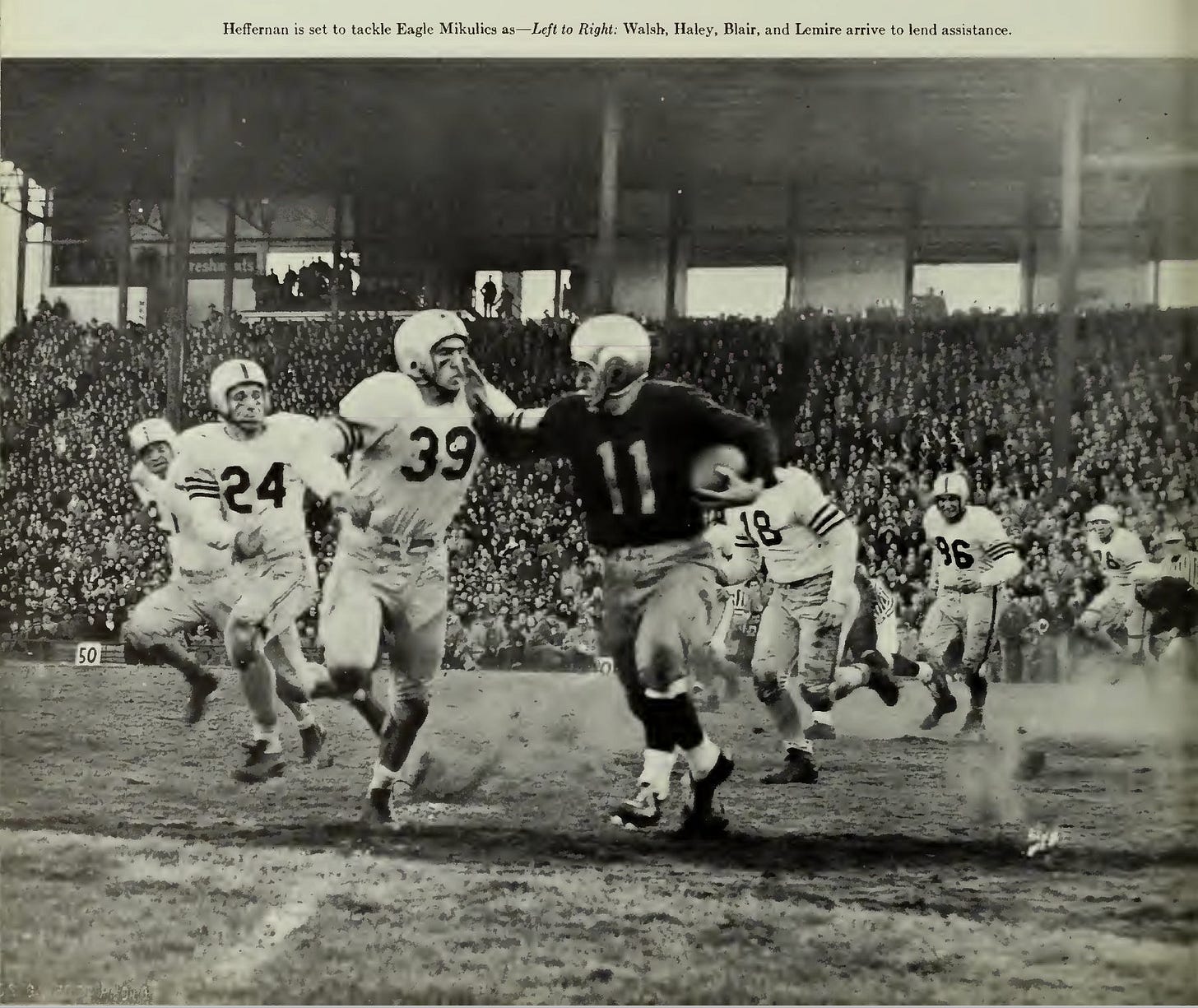#371: Three yards and a cloud of …
The quickest way to lose the confidence of the team, and how to avoid it
It was the summer before my senior year in high school. August in Detroit is hot, dry, and painful for high school athletes. Why is it painful? That’s when two-a-day practices start for football. The team would gather at 8 am for the morning session that ended at 11 and come back from 1 pm to 4. Conditioning, learning the new plays and some new players, competing for roster spots, and building confidence.
This year was going to be different. We had a new coach—the first coach this high school had hired in nearly thirty years. Coming off the previous year, when we were winless, the entire team was excited to try something different. Coach Pete was installing a new offense and, with it, confidence that we could win some games.
Those three weeks in August were brutal—some of the driest and hottest I remember. We practiced hard and ran through plays dozens of times. Like any offense, there were plays designed for short, medium, and big yardage gains. We spent most of our time working on the short blast plays, designed for three yards or so at a time.
The coach laid out the game plan as we approached our first game of the year. I was confused when we looked at the first ten plays we would run. As a senior who never had a problem questioning authority, I asked the coach, “Why are we going to run these plays that will get us three yards at a time?” The coach returned with a simple answer, “Son, you get me three plays in a row for three yards, and you’ll have my confidence that we can go for it on 4th down.”
You know what happened, right? Friday Night Lights and all, we won the coin toss, took the ball, and ran three plays in a row, gaining us three yards each. On fourth and one, the entire offense stood on the field waiting for the play and was shocked when the punt team ran onto the field. We stood there so long with our mouths open that the coach had to burn a time-out. As I walked off the field, Coach Pete grabbed my face mask and pulled me onto the sidelines, letting me know exactly how unhappy he was.
I’m sure the final score wasn’t this bad, but I like to remember that we lost 49-0. It didn’t matter that we lost the game; the coach lost the team. He told us he lacked confidence in our team without muttering one word, and we lost trust in him.
As a leader, your words matter.
If you say you’ll do something, you best do it, or you lose the trust that is so important in a team. John C. Maxwell writes about the Law of Solid Ground - that foundation is trust. You can’t lead without it. It’s one of the 21 Irrefutable Laws of Leadership, and Coach Pete failed miserably here. Without the trust, we didn’t believe. There was a loss of motivation and purpose in our practices. Why practice something that he didn’t think we could do?
Did we make a bigger deal out of this than we should have? Most definitely. But this team hadn’t won a game in over two years. We came into this season with hope; although hope is never a strategy, we need it to succeed.
My regular readers know I love my Detroit Lions. Their new Coach, Dan Campbell, believes in the team, and they believe in him. Campbell goes for it on fourth down more than any other coach, and his team expects it. The players expect to execute when called upon and vice versa. Sure, going for it and not being conservative may cost points and even a game. But it’s a battle you may lose, not the war. You need that team to be there for the long haul, not just this one series or project.
When is it okay to fail?
Failure is acceptable for leaders when it catalyzes learning, growth, and improvement. Leaders can turn setbacks into stepping stones for future success by managing failures thoughtfully and constructively.
If you teach your team they must win at all costs, you impede their overall growth. Risk and reward go hand in hand. Removing risk from decision-making will also reduce the company’s rewards. Your responsibility is to maximize the value of the organization, not put the money in a low-interest savings account.
For failure to be acceptable and constructive, certain conditions should be met:
Non-catastrophic Impact: The failure should not result in irreversible damage or harm to the organization, stakeholders, or individuals.
Learning Orientation: There should be a clear process for reflecting on failures, understanding what went wrong, and applying lessons learned to future efforts.
Supportive Culture: The organizational culture should support taking risks and learning from failure without fear of blame or retribution.
If it’s 4th and 1 in the first game of the year, go for it. Give confidence in your offense to make the play. Remember, if the offense fails, you have a defense you can rely on as well. One decision can help you build trust on both sides of the ball.
If you have lost your team's trust, let’s work together to rebuild it. This is hard work today, but it will lead to a better tomorrow. Join me for a 30-minute discovery call to see how we can help.




